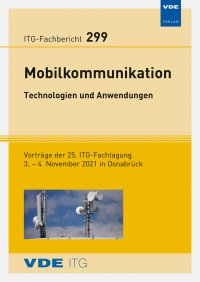Estimating the impact of Wi-Fi hotspot access links on end-to-end throughput using machine learning mechanisms
Konferenz: Mobilkommunikation - 25. ITG-Fachtagung
03.11.2021 - 04.11.2021 in Osnabrück
Tagungsband: ITG-Fb. 299: Mobilkommunikation – Technologien und Anwendungen
Seiten: 6Sprache: EnglischTyp: PDF
Autoren:
Eiling, Constantin (zafaco GmbH, Cologne Germany,)
Grebe, Andreas (Institute of Communications Engineering, TH Köln, Cologne Germany)
Inhalt:
In large Wi-Fi network installations, usually single client access capacity is shaped to a defined throughput level, which can be monitored by end-to-end throughput measurements. The available capacity for single clients in Wi-Fi networks is dependent on many different network parameters and Wi-Fi settings like the IEEE 802.11 standard, channel bandwidth, MCS scheme, guard interval, number of parallel active streams or interfering wireless networks. Quality monitoring tests for engineering and optimization by Wi-Fi hotspot providers mostly focus on some throughput measurements to remote servers. In case of QoS degradation it is unclear, whether the local Wi-Fi access network has become the bottleneck for these measurements. In this paper we introduce a novel mechanism to estimate by machine learning classification whether the local Wi-Fi access network is the limiting network. In this paper we focus on IEEE 802.11n and IEEE 802.11ac technology, which is implemented in most public Wi-Fi hotspot networks.


